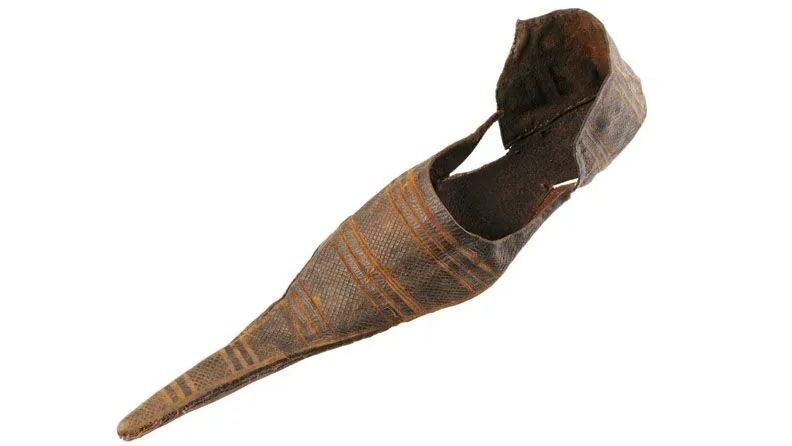'My son knew he could overcome tumour to walk again'
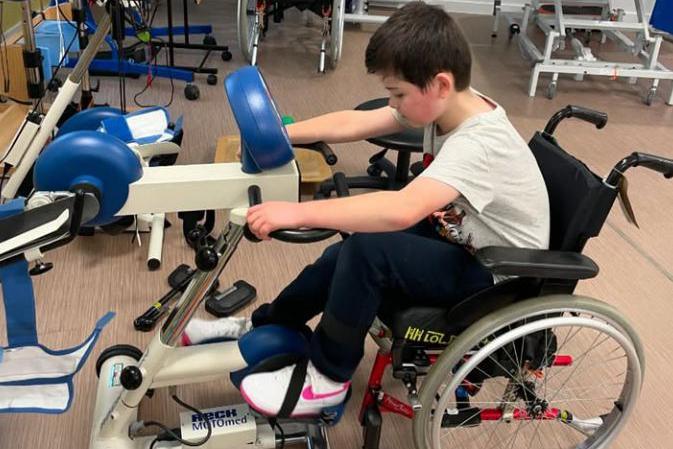
Harry Goulden began physiotherapy very soon after having his tumour removed
- Published
"As soon as he found out it was a tumour, he decided it was something he could overcome and he would be able to walk again," Miriam Fine-Goulden said.
Her "sporty" son Harry Goulden, from Hampstead Garden Suburb, north London, woke up one morning paralysed from the chest down due to a rare spinal tumour.
Dr Fine-Goulden describes the 10-year-old as a healthy boy who loves football and playing with his twin brother, Jesse – but on 9 October he suddenly started feeling pain in the back of his neck.
"He didn't go to football practice and he couldn't sleep because the pain was bothering him," she said.
When he awoke the next morning he was paralysed and had "no power in his legs at all".
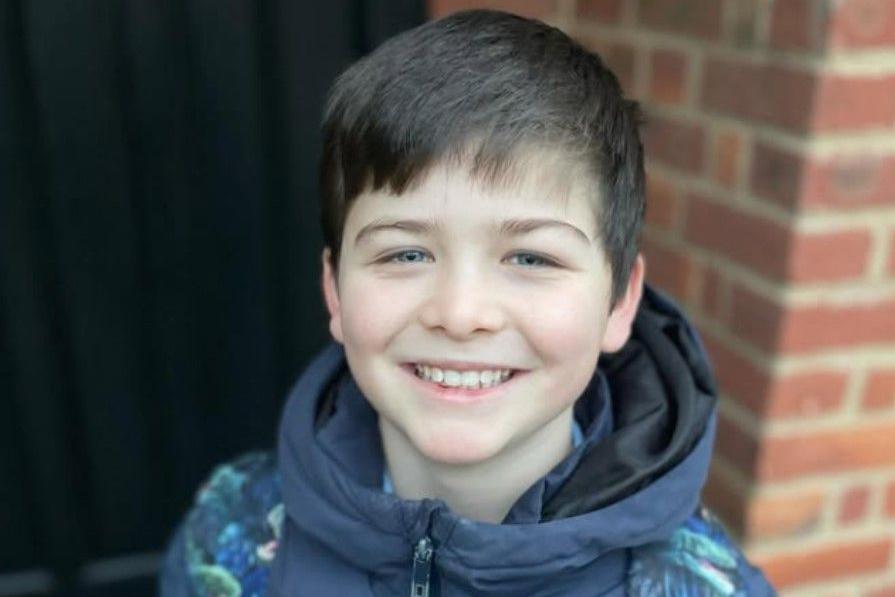
Harry's mum describes him as a "sporty" boy who loves football
Harry and his mother rushed to A&E at Evelina London Children's Hospital where an urgent MRI scan revealed a rare tumour the size of a walnut growing on his spine. It had also formed a blood clot, impacting his movement from the chest down and they were informed he may "never walk again".
"When I first heard he wasn't going to be able to walk again, I thought 'OK fine, this is what his life is going to be like'," Dr Fine-Goulden said.
He was then taken to King's College Hospital in a children's specialist ambulance where he received an emergency operation on his spine to remove the blood clot and a large part of the tumour.
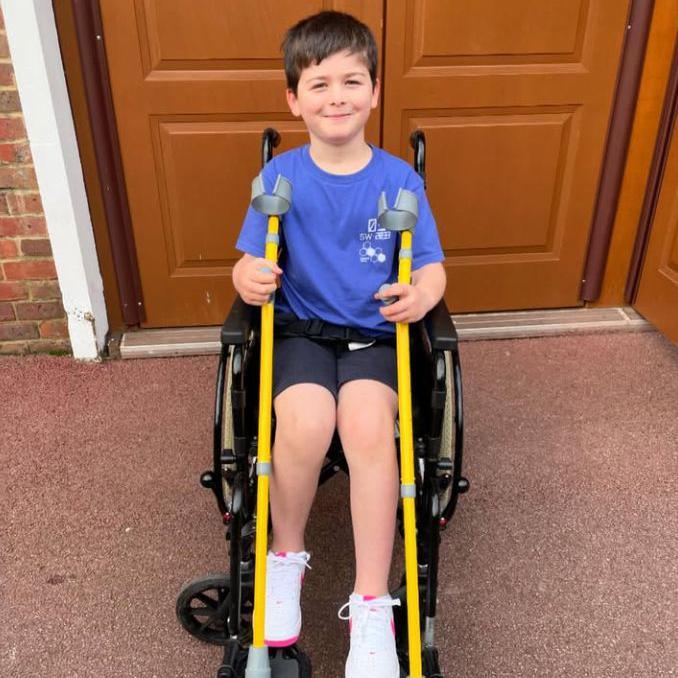
The tumour left Harry without power in his legs before it was removed
The mass itself was benign and samples were sent off for further testing to determine whether it is likely to grow back in the future.
Harry's mother said she was "very nervous" when he woke up in the morning and could not use his legs but after finding out it was caused by a tumour and he would need an operation, he "decided he was going to be fine and he'd be able to walk".
"He was reassured when he knew what it was, I think he felt worried when he didn't know," she added.
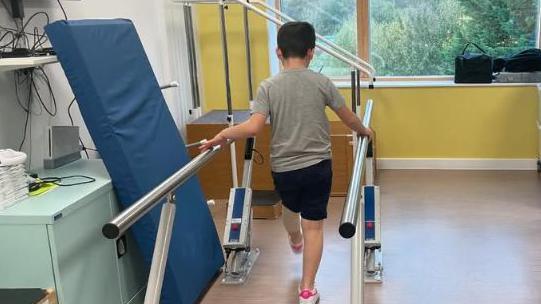
Ms Fine-Goulden says her son went through nearly six weeks of physiotherapy
Bassel Zebian, Harry's consultant neurosurgeon at King's said they have only seen a "handful" of young people with similar tumours in the last 10 years.
"Harry presented with a rare Diffuse Leptomeningeal Glioneuronal Tumour," he said.
"The tumour was high up in Harry's spinal cord and had bled, resulting in loss of function from the chest down."
He added they had to act quickly to give him the best chance of walking again.
Harry undertook three-and-a-half weeks of extensive physiotherapy at King's, and a further two weeks at a specialist rehabilitation hospital in Stanmore, north London, which has helped him get back on his feet.
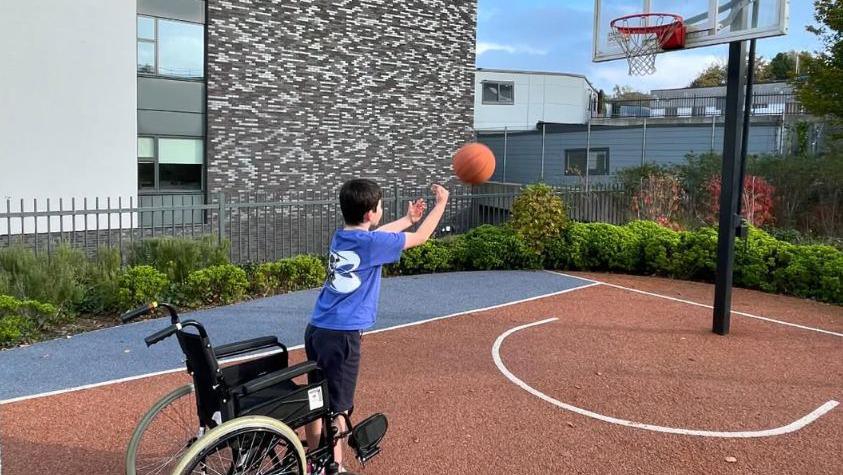
Harry beat the odds with the time taken to make his recovery, his mum says
"It was a slow process – he stood up, then he was walking with a frame, then walking with crutches," Dr Fine-Goulden said, who is a paediatric intensive care consultant.
"It took him five-and-a-half weeks to walk independently."
Harry's mum called his recovery "remarkable".
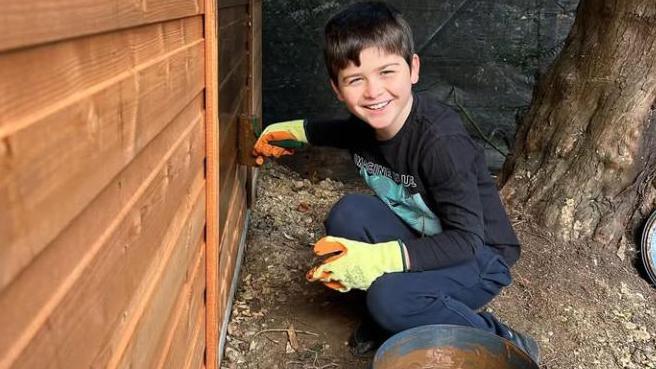
The 10-year-old back to himself three and a half months on, Dr Fine-Goulden says
"Nobody expected him to recover as quickly and successfully as he has done, not the surgeon, not the neurologist, not the physiotherapists – but he did," she said.
"He had such a tremendous self-belief and self-confidence and I think that really helped."
Listen to the best of BBC Radio London on Sounds and follow BBC London on Facebook, external, X, external and Instagram, external. Send your story ideas to hello.bbclondon@bbc.co.uk, external
Related topics
More stories from London
- Published12 January
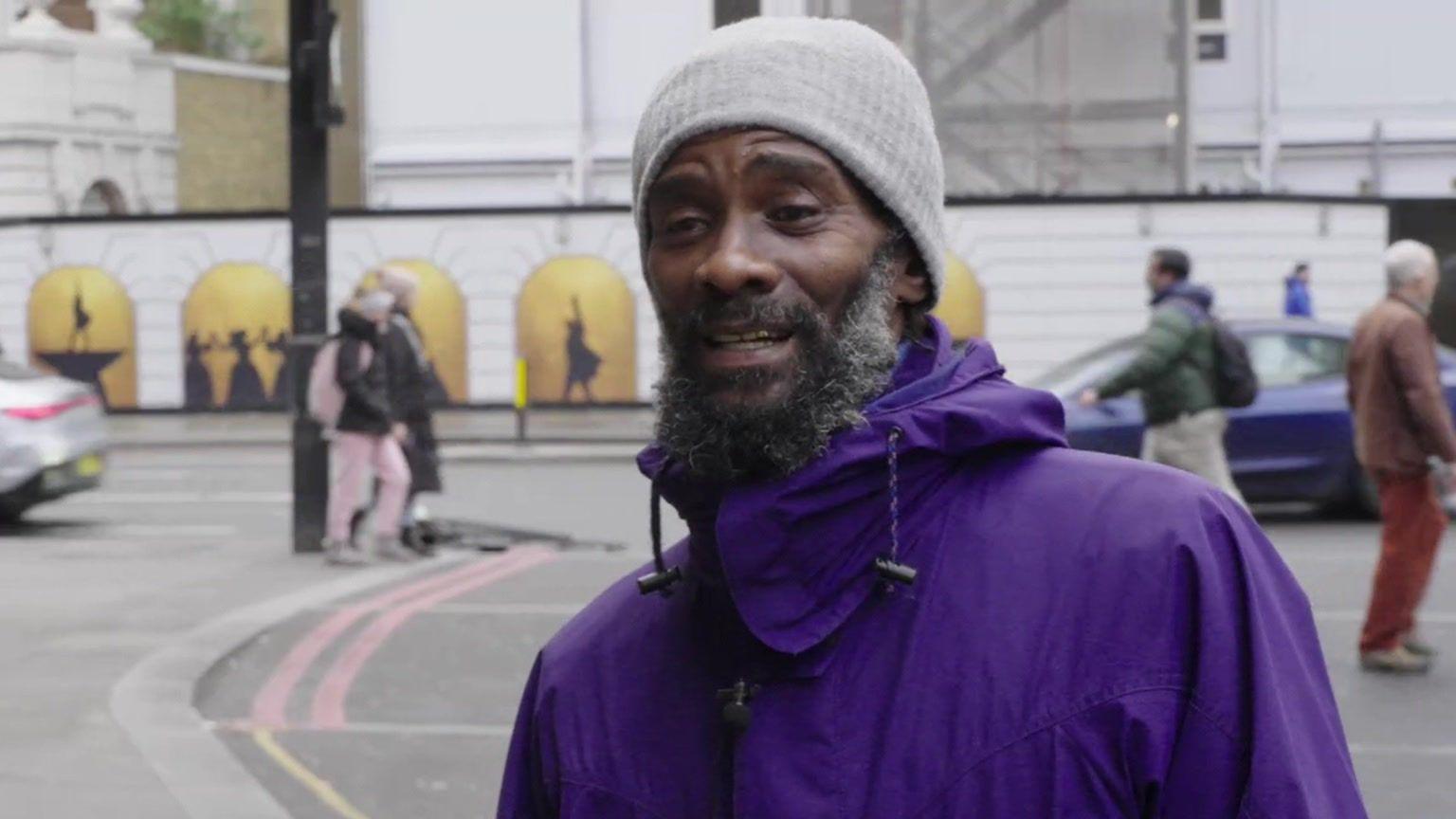
- Published6 January
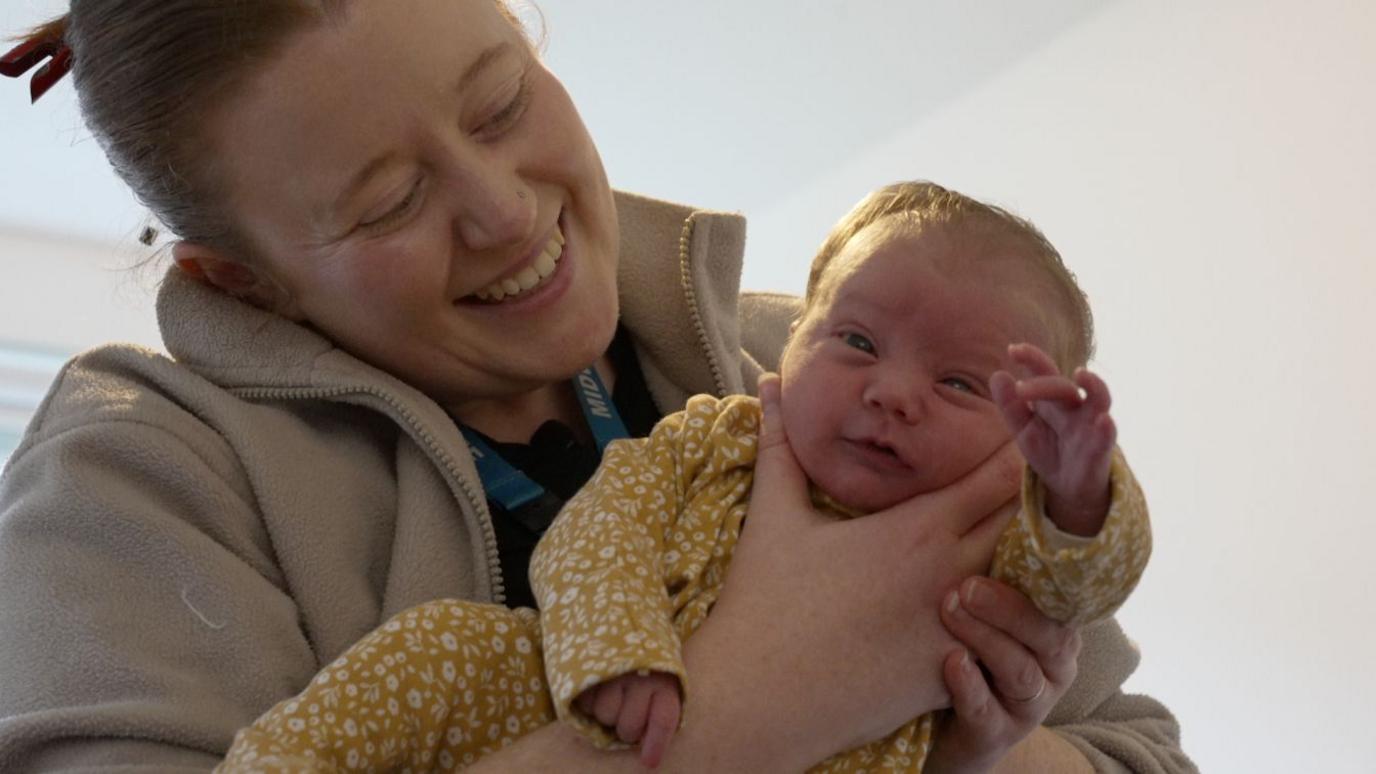
- Published5 January
